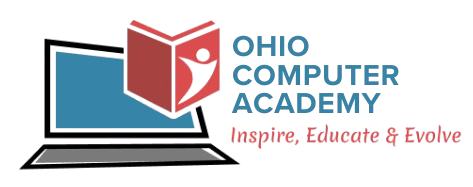Launch your career in DevOps by developing in-demand skills and become job-ready in 30 hours or less.
Highlights
Upgrade your career with top notch training
- Enhance Your Skills: Gain invaluable training that prepares you for success.
- Instructor-Led Training: Engage in interactive sessions that include hands-on exercises for practical experience.
- Flexible Online Format: Participate in the course from the comfort of your home or office.
- Accessible Learning Platform: Access course content on any device through our Learning Management System (LMS).
- Flexible Schedule: Enjoy a schedule that accommodates your personal and professional commitments.
- Job Assistance: Benefit from comprehensive support, including resume preparation and mock interviews to help you secure a position in the industry.
Outcomes
By the end of this course, participants will be equipped with:
- Fundamental Understanding of DevOps:
-
- Participants will gain a comprehensive understanding of what DevOps is, its evolution, and its importance in modern software development practices.
- Proficiency in Core DevOps Principles:
-
- Learners will be able to articulate and apply the core principles of DevOps, including collaboration, continuous integration, and continuous delivery.
- Mastery of Key DevOps Practices:
-
- Participants will have hands-on experience implementing key DevOps practices, such as continuous integration (CI) and continuous deployment (CD), and using Infrastructure as Code (IaC) tools.
- Knowledge of Business and Technology Frameworks:
-
- Attendees will understand how Agile, Lean, and other methodologies integrate with DevOps to streamline project workflows and achieve business objectives.
- Cultural Competence for DevOps Team Dynamics:
-
- Participants will appreciate the cultural shifts necessary for successful DevOps adoption, fostering collaboration and effective communication across teams.
- Ability to Design and Architect Toolchains:
-
- Learners will gain skills in architecting effective DevOps toolchains, understanding how to select and integrate various tools for automation and process optimization.
- Understanding Performance Metrics and Reporting:
-
- Participants will learn how to define, measure, and report on key performance indicators (KPIs) to assess the effectiveness of DevOps initiatives.
- Practical Experience through Hands-On Projects:
-
- Engage in practical exercises and projects that apply DevOps concepts and techniques to real-world scenarios, reinforcing the application of learned skills.
- Skills for Ongoing Learning and Adaptation:
-
- Participants will understand the importance of continuous improvement and knowledge sharing within DevOps, equipping them to adapt and evolve practices over time.
- Preparation for Advanced Roles in DevOps:
- Equip participants with essential skills needed for a variety of roles within the DevOps field, such as DevOps Engineer, CI/CD Developer, and Cloud Solutions Architect.
About
DevOps is a set of practices and cultural philosophies that aim to improve collaboration between development and operations teams, streamline software delivery, and enhance operational efficiency. It emphasizes automation, continuous integration and delivery, and a strong focus on metrics and feedback to achieve faster, more reliable, and scalable software deployments.
This course provides a thorough introduction to DevOps, covering its key principles, practices, and integration with business and technology. You’ll learn about process automation, building DevOps toolchains, and measuring performance. Additionally, the course addresses cultural aspects and evolving DevOps practices. It’s perfect for those wanting to build practical DevOps skills.
Key Learnings
- Gain a clear understanding of DevOps principles, methodologies, and its significance in modern software development and IT operations.
- Learn the essential principles that underpin DevOps, such as collaboration, continuous integration, continuous delivery, and automation.
- Develop practical skills in implementing key DevOps practices, including CI/CD pipelines, version control, and Infrastructure as Code (IaC).
- Explore how Agile, Lean, and other methodologies integrate with DevOps to improve project management and efficiency.
- Recognize the cultural shifts needed for successful DevOps implementation, including fostering a collaborative environment and embracing shared responsibility.
- Learn to architect and implement DevOps toolchains that incorporate various automation tools and practices for streamlined workflows.
- Understand how to define and track key performance indicators (KPIs) to evaluate the success of DevOps initiatives and processes.
- Gain experience with various tools and techniques for automating processes and managing deployments in a DevOps environment.
- Engage in hands-on projects and real-world scenarios that allow participants to apply learned concepts and techniques directly, reinforcing their understanding.
- Equip participants with the foundational skills necessary to pursue a variety of roles within the DevOps field, such as DevOps Engineer, Release Manager, or Continuous Integration Developer.
Pre-requisites
- Familiarity with software development concepts, practices, and life cycle stages (e.g., planning, development, testing, deployment).
- Some familiarity with at least one programming language (such as Python or Java) will be beneficial.
Job roles and career paths
This training will equip you for the following job roles and career paths:
- DevOps Engineer
- Continuous Integration/Continuous Deployment (CI/CD) Engineer
- Automation Engineer
- Quality Assurance (QA) Engineer
- Cloud Operations Engineer
Mastering DevOps Essentials
The demand for the course “Mastering DevOps Essentials” is strong, driven by the growing adoption of DevOps practices among organizations aiming to improve collaboration between development and operations teams. As businesses increasingly focus on continuous integration and continuous delivery (CI/CD), there is an evident need for skilled professionals who can implement and manage these processes effectively.
Additionally, the emphasis on data-driven decision-making highlights the necessity for training in DevOps, as it enables faster and more reliable data integration and deployment. This course prepares participants for diverse career opportunities, such as DevOps Engineer and Cloud Engineer, all of which are in high demand due to ongoing digital transformation efforts across industries.
Topics of Course
-
Introduction to DevOps: Definition and evolution
-
The need for DevOps in modern software development
-
Overview of DevOps tools and technologies
-
Key principles of DevOps, including collaboration, integration, and continuous delivery.
-
The importance of customer-centric development.
-
Understanding the DevOps lifecycle.
-
Continuous Integration (CI) and Continuous Deployment (CD) processes.
-
Infrastructure as Code (IaC) and its role in DevOps.
-
Version control and collaborative coding practices.
-
Overview of Agile, Lean, and other methodologies in conjunction with DevOps.
-
The role of frameworks in streamlining development and operational processes.
-
Understanding the importance of alignment between business goals and technology strategies.
-
The cultural shift required for successful DevOps implementation.
-
Encouraging collaboration and communication between teams.
-
Changes in operating models to support DevOps practices and mindsets.
-
The importance of automation in the DevOps process.
-
Key tools for automating processes: CI/CD tools, configuration management, and monitoring systems.
-
Designing effective DevOps toolchains.
-
Defining key performance indicators (KPIs) for analyzing DevOps success.
-
Techniques for measuring and reporting on DevOps activities.
-
The significance of feedback loops and continuous improvement.


 Free
Free
 Free
Free
 Free
Free

